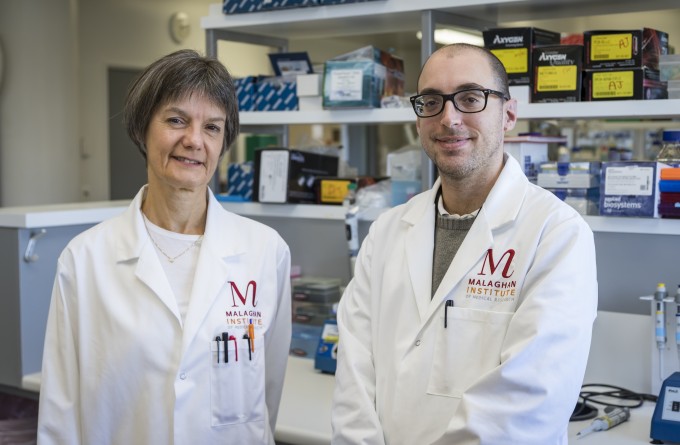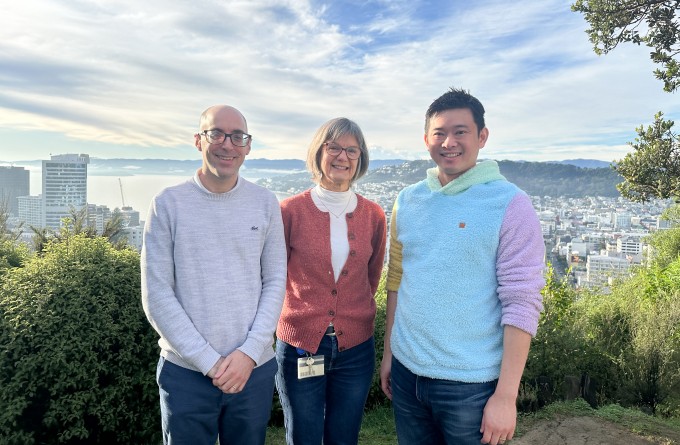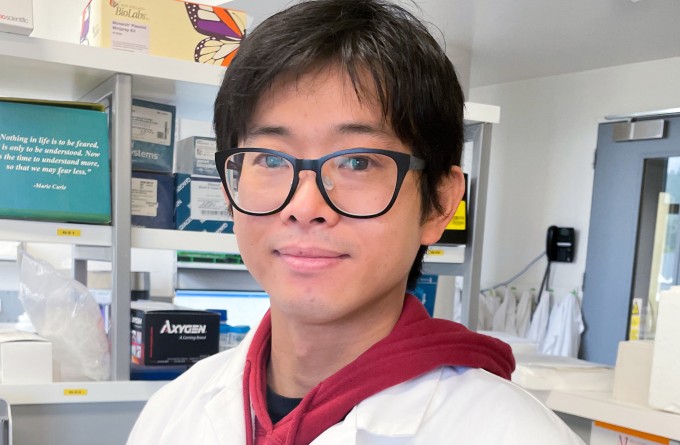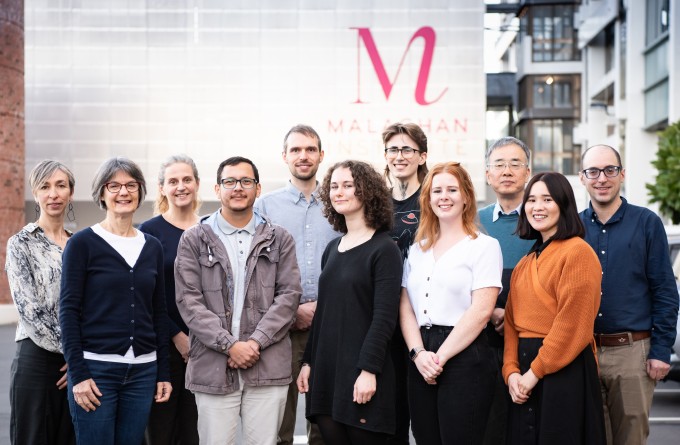Dr Olivier Lamiable
Team Leader - Ronchese Laboratory
PhD(Université d'Orléans)
At the University of Orleans, France, Dr Olivier Lamiable achieved his License degree, Master’s degree and PhD. Completed early 2010, his PhD focused on epigenetic regulation of the embryonic development of Drosophila melanogaster (the common fruit fly). His research identified and characterised protein partners of the ortholog of HMGB1 that are involved in this process. Following this, Olivier studied the antiviral responses of D. melanogaster at Institute de Biologie Moleculaire et Cellulaire in Strasbourg, France.
Olivier was drawn to the Malaghan Institute by the opportunity to transfer his skills into research more applicable to human health. He is currently a team leader within the Ronchese Laboratory, with a focus on allergies.
Research interests
"Allergies involve the immune system overreacting to harmless substances. Over a third of New Zealanders experience allergies in their lifetime, at differing levels of severity. These can range from minor inconveniences to life threatening conditions. While there are various drugs to manage symptoms, curative treatments for allergies do not yet exist.
"I am interested in understanding the processes that begin an allergic reaction. I particularly focus on the genetic regulation of the immune system and how dendritic cells function in allergic reactions.
"Alongside Professor France Ronchese and the Ronchese Laboratory team, we study dendritic cells, a rare cell population essential to immune responses. As a molecular immunologist, I combine immunology with molecular technologies and bioinformatics to explore what triggers these cells to mount an allergic response. If we can understand these mechanisms, we could potentially target them in new therapies.
"This exciting project explores fundamentals of immunology and cell biology that could have a strong impact on global health and medicine. Allergy is a prominent disease in the developed world, with rates of incidence increasing but with no clear understanding why. Our projects aim to uncover the unknowns of allergies in order to answer these questions and discover new therapeutic targets."
Related news

Tracking allergies to their source: new research offers insight into mechanisms priming the allergic response
2 July 2025

International collaboration finds lipid imbalance in the skin may contribute to inflammatory conditions
24 June 2024

Health Research Council to fund clinical study investigating the skin’s role in initiating allergic disease
28 June 2023

Discovery points to the skin as ‘ground zero’ for allergic disease
19 November 2021

Research under lockdown: Keeping an eye on dendritic cells in the skin
26 May 2020
Publications
2022
Lamiable O, Brewerton M, Ronchese F (2022). IL-13 in dermal type-2 dendritic cell specialization: from function to therapeutic targeting. Eur J Immunol. 52(7):1047-1057
2021
Mayer JU, Hilligan KL, Chandler JS, Eccles DA, Old SI, Domingues RG, Yang J, Webb GR, Munoz-Erazo L, Hyde EJ, Wakelin KA, Tang SC, Chappell SC, von Daake S, Brombacher F, Mackay CR, Sher A, Tussiwand R, Connor LM, Gallego-Ortega D, Jankovic D, Le Gros G, Hepworth MR, Lamiable O, Ronchese F (2021). Homeostatic IL-13 in healthy skin directs dendritic cell differentiation to promote TH2 and inhibit TH17 cell polarization. Nat Immunol. 2021 Nov 18
2018
Poyntz, HC, Jones A, Jauregui R, Young W, Gestin A, Mooney A, Lamiable O, Altermann E, Schmidt A, Gasser O, Weyrich L, Jolly CJ, Linterman MA, Le Gros G, Hawkins ED, Forbes-Blom E (2018) Genetic regulation of antibody responsiveness to immunization in substrains or BALB/c mice. Immunol & Cell Biol 97(1):39-53
Ochiai S, Jagot F, Kyle RL, Hyde E, White RF, Prout M, Schmidt AJ, Yamane H, Lamiable O, Le Gros G, Ronchese F (2018) Thymic stromal lymphopoietin drives the development of IL-13 + Th2 cells. PNAS USA 115(5)1033-1038
2017
White R, Pellefigues C, Ronchese F, Lamiable O, Eccles D (2017) Investigation of chimeric reads using the MinION. F1000Research.
Connor LM, Lamiable O, Ronchese F (2017) Fetal dendritic cells give mum a break. Immunol Cell Biol.
Connor LM, Tang SC, Cognard E, Ochiai S, Hilligan K, Old S, Pellefigues C, White R, Patel D, Smith A, Eccles D, Lamiable O, McConnell M, Ronchese F (2017) Th2 responses are primed by skin dendritic cells with distinct transcriptional profiles. J Exp Med.
Pellefigues C, Tang SC, Schmidt A, White RF, Lamiable O, Connor LM, Ruedl C, Dobrucki J, Le Gros G, Ronchese F (2017) Toll-Like Receptor 4, but Not Neutrophil Extraceullular Traps, Promote IFN Type I Expression to Enhance Th2 Responses to Nippostrongylus brasiliensis. Front Immunol 8:1575
2024
Ronchese F, Webb GR, Ochiai S, Lamiable O, Brewerton M (2024). How type-2 dendritic cells induce Th2 differentiation: Instruction, repression, or fostering T cell-T cell communication? Allergy. 2024 Sep 26.
Lee JE, Kim M, Ochiai S, Kim SH, Yeo H, Bok J, Kim J, Park M, Kim D, Lamiable O, Lee M, Kim MJ, Kim HY, Ronchese F, Kwon SW, Lee H, Kim TG, Chung Y (2024). Tonic type 2 immunity is a critical tissue checkpoint controlling autoimmunity in the skin. Cell Rep. 43(7):114364
